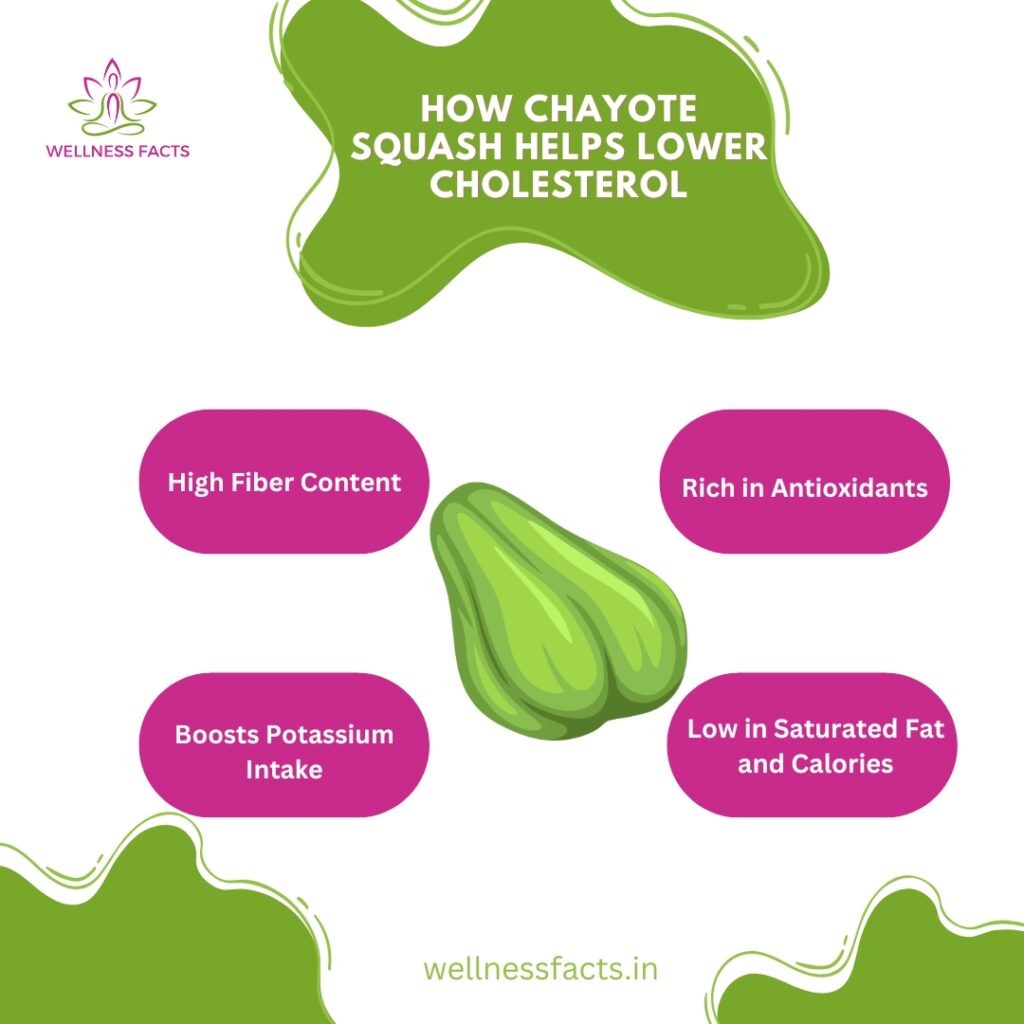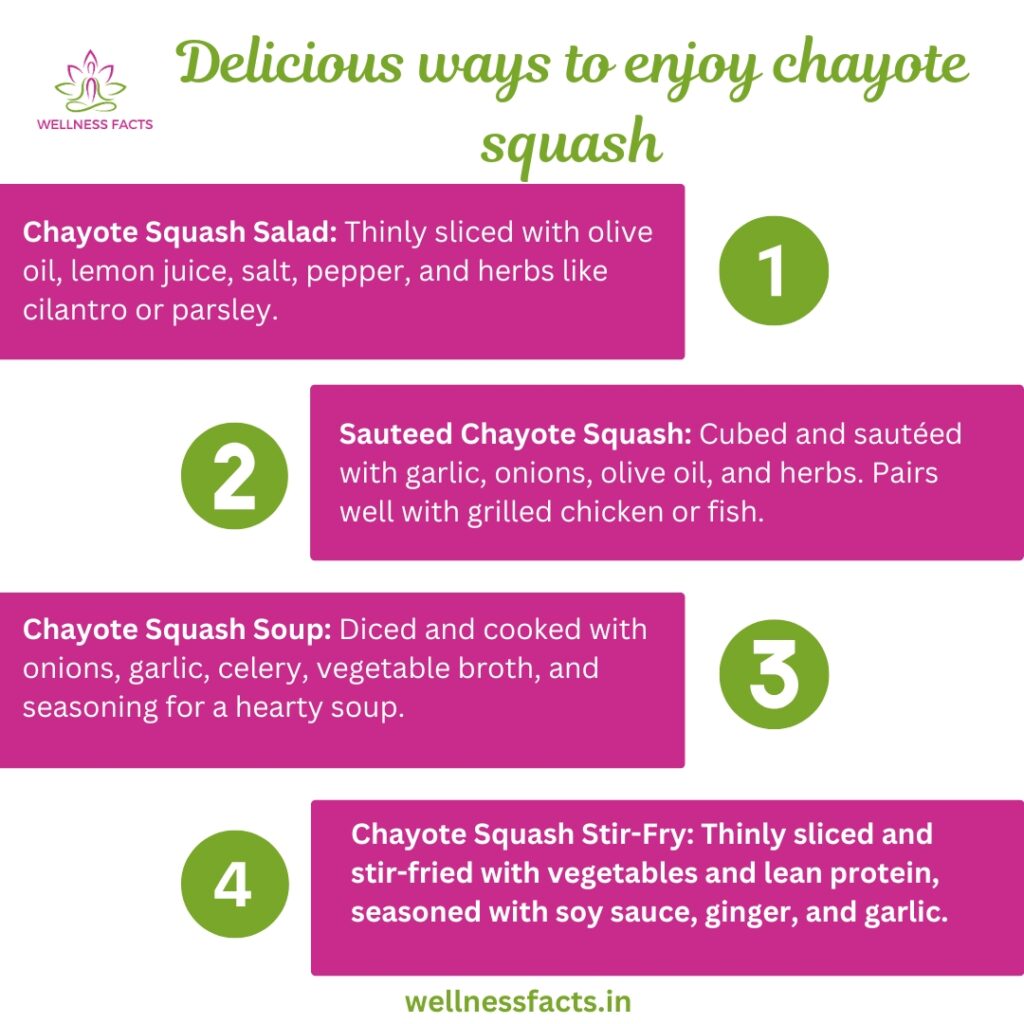High cholesterol is a widespread health issue impacting millions globally. While many turn to medications and lifestyle changes to manage their cholesterol levels, there’s a lesser-known, natural ally in this fight – a humble squash. In this blog post, we’ll explore this squash, its health benefits, and how it can help lower high cholesterol.
What is this Little-Known Squash?
Introducing Chayote Squash
Chayote squash, also known as vegetable pear or mirliton, is a green, wrinkled, pear-shaped fruit that belongs to the gourd family. It is native to Central America but is now grown in various parts of the world, including the United States. Chayote is not only versatile in the kitchen but also packed with nutrients that can support heart health.
Nutritional Profile of Chayote Squash
Chayote squash is low in calories, making it a great addition to a heart-healthy diet. Here’s a quick look at its nutritional content:
-
Calories:
Approximately 25 per cup -
Fiber:
3 grams per cup -
Vitamin C:
17% of the Daily Value (DV) -
Vitamin B6:
7% of the DV -
Folate:
18% of the DV -
Potassium:
8% of the DV
How Chayote Squash Helps Lower Cholesterol

High Fiber Content
One of the most significant ways chayote squash helps lower cholesterol is through its high fiber content. Dietary fiber binds with cholesterol in the digestive system, preventing its absorption into the bloodstream. This process helps reduce overall cholesterol levels, particularly LDL (low-density lipoprotein) cholesterol, often referred to as “bad” cholesterol.
Rich in Antioxidants
Chayote squash is rich in antioxidants such as vitamin C, which help reduce inflammation and oxidative stress in the body. Oxidative stress can damage blood vessels and lead to the buildup of cholesterol plaques, increasing the risk of heart disease. By incorporating chayote squash into your diet, you can help protect your heart and improve your cholesterol levels.
Low in Saturated Fat and Calories
Maintaining a diet low in saturated fat is crucial for managing cholesterol levels. Chayote squash is naturally low in saturated fat and calories, making it an excellent choice for those looking to manage their cholesterol through diet. It provides a nutritious alternative to higher-calorie and higher-fat foods.
Boosts Potassium Intake
Potassium is an essential mineral that helps regulate blood pressure and counteracts the effects of sodium. High blood pressure is a risk factor for heart disease, and consuming potassium-rich foods like chayote squash can help manage it. By supporting healthy blood pressure levels, chayote squash indirectly aids in maintaining healthy cholesterol levels.
Delicious Ways to Incorporate Chayote Squash into Your Diet

Chayote Squash Salad
A simple and refreshing way to enjoy chayote squash is by making a salad. Peel and slice the squash thinly, then toss it with olive oil, lemon juice, salt, and pepper. Include chopped herbs such as cilantro or parsley to enhance the flavor.This salad can be a great side dish or a light lunch.
Sauteed Chayote Squash
For a quick and tasty side dish, try sautéing chayote squash. Cut the squash into small cubes and sauté it in olive oil with garlic and onions. Add salt, pepper, and your preferred herbs for seasoning. This dish pairs well with grilled chicken or fish, adding a nutritious boost to your meal.
Chayote Squash Soup
Chayote squash makes a delicious and hearty soup. Start by sautéing onions, garlic, and celery in olive oil. Add diced chayote squash, vegetable broth, and your favorite seasoning. This soup is perfect for a light dinner or as an appetizer.
Chayote Squash Stir-Fry
For a quick and nutritious meal, try a chayote squash stir-fry. Slice the squash thinly and stir-fry it with your favorite vegetables and lean protein, such as chicken or tofu. Season with soy sauce, ginger, and garlic for a flavorful and heart-healthy dish.
Conclusion
Chayote squash is a versatile and nutritious vegetable that can play a significant role in managing high cholesterol. Its high fiber content, antioxidant properties, low saturated fat, and rich potassium levels make it an excellent addition to a heart-healthy diet. By incorporating chayote squash into your meals, you can enjoy delicious dishes while supporting your heart health and lowering your cholesterol levels.
So, next time you’re at the grocery store, don’t overlook the chayote squash. Give it a try and experience its many health benefits for yourself. Your heart will thank you!
The Benefits of a Balanced Diet: Nourishing Your Body and Soul- Read more
